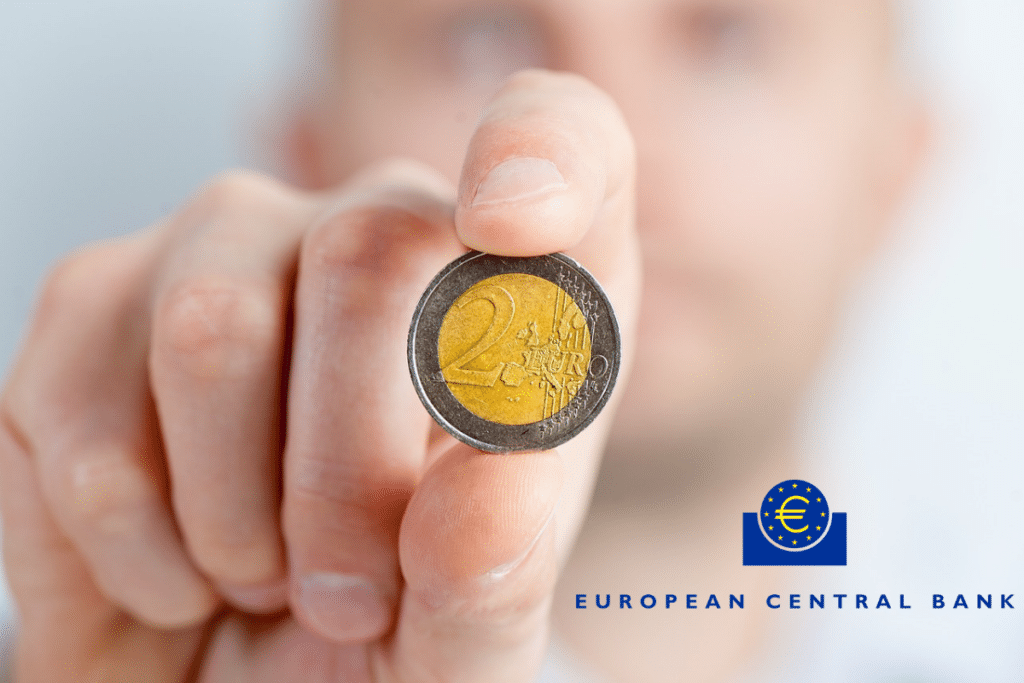Christine Lagarde admet que l'euro numérique ne sera pas "totalement anonyme"https://t.co/Fhl7ovvJD8
— Pauline Armandet (@PaulineArmandet) September 26, 2023
A
A
Digital Euro: “Not Completely Anonymous,” Says the ECB
Wed 27 Sep 2023 ▪
3
min read ▪ by
Getting informed
▪
Payment
It has been several months since the ECB unveiled its digital euro project, an announcement that continues to reverberate in the financial markets. A recent statement by Christine Lagarde, President of the ECB, has garnered particular attention from the crypto community. According to the ECB President, the digital euro (to be distinguished from a cryptocurrency) will not be anonymous. This revelation raises deep questions about privacy protection, and many analysts are also pondering the potential implications of this digital euro project on cryptocurrencies.

The digital euro will not guarantee complete anonymity
As the days pass, more and more significant revelations about the digital euro are emerging, and they are not always universally welcomed within the crypto community (and beyond).
During a recent address to European lawmakers, for example, Christine Lagarde stated that the digital euro will not be entirely anonymous. “Unlike traditional banknotes, the digital euro will leave a trace on the blockchain,” she explained in her statement.
Analysis: The ECB’s digital euro will not ensure absolute anonymity in the context of cryptocurrency.
To elaborate on this statement, German European Parliament member Gunnar Beck has asked Lagarde to provide a clear distinction between “anonymity” and “privacy.” In the same vein, some members of the crypto community have expressed concerns about potential excessive surveillance by the ECB.
In response, Christine Lagarde clarified that banks would have access to data. However, they would analyze and share it with users. “The ECB will not be a Big Brother in the crypto world, and the data will not be at its disposal,” she emphasized.
The delicate balance between privacy and security
The announcement that the ECB’s digital euro will not be anonymous has sparked intense debate within the crypto community. For cryptocurrency enthusiasts, anonymity is a fundamental feature that ensures financial privacy. Indeed, cryptocurrency users (especially Bitcoin users) have long regarded anonymity as a means of preserving individual freedom.
However, the concern lies in the potential misuse of this anonymity for illegal purposes such as money laundering and terrorism financing. The fundamental question, therefore, is how to strike a balance between protecting privacy and tracking crypto transactions. To hope for widespread adoption of the digital euro, the ECB will need to address this question.
Maximize your Cointribune experience with our "Read to Earn" program! For every article you read, earn points and access exclusive rewards. Sign up now and start earning benefits.
A
A

My name is Ariela, and I am 31 years old. I have been working in the field of web writing for 7 years now. I only discovered trading and cryptocurrency a few years ago, but it is a universe that greatly interests me. The topics covered on the platform allow me to learn more. A singer in my spare time, I also cultivate a great passion for music and reading (and animals!)
DISCLAIMER
The views, thoughts, and opinions expressed in this article belong solely to the author, and should not be taken as investment advice. Do your own research before taking any investment decisions.